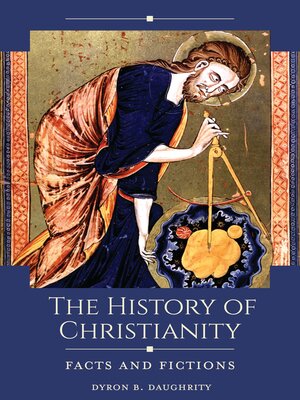The History of Christianity
ebook ∣ Facts and Fictions · Historical Facts and Fictions
By Dyron B. Daughrity

Sign up to save your library
With an OverDrive account, you can save your favorite libraries for at-a-glance information about availability. Find out more about OverDrive accounts.
Find this title in Libby, the library reading app by OverDrive.



Search for a digital library with this title
Title found at these libraries:
| Library Name | Distance |
|---|---|
| Loading... |
Christianity has been accused of being misogynistic, pro-slavery, and anti-science, and some say it is finally beginning its long decline. This book provides an entirely different side to the stories about this faith.
Why did Christianity become the largest religion in the world? Is it because it was misogynistic, pro-slavery, anti-science, and set on condemning those who didn't join it? This book investigates many of the misconceptions about Christianity and argues that there are good reasons this faith has become the world's largest.
The book includes chapters on various misconceptions related to the history of Christianity, such as the beliefs that Jesus was a meek and mild carpenter, the Roman emperor Constantine was insincere in his Christian faith, medieval Europe was devoutly Christian, and Christianity was anti-science. Each chapter explores how the historical misconception developed and spread, and offers what we now believe to be the historical truth contradicting the fiction. Excerpts from primary source documents provide evidence for the historical misconceptions and truths and help readers to respond critically to claims about Christian history.
Why did Christianity become the largest religion in the world? Is it because it was misogynistic, pro-slavery, anti-science, and set on condemning those who didn't join it? This book investigates many of the misconceptions about Christianity and argues that there are good reasons this faith has become the world's largest.
The book includes chapters on various misconceptions related to the history of Christianity, such as the beliefs that Jesus was a meek and mild carpenter, the Roman emperor Constantine was insincere in his Christian faith, medieval Europe was devoutly Christian, and Christianity was anti-science. Each chapter explores how the historical misconception developed and spread, and offers what we now believe to be the historical truth contradicting the fiction. Excerpts from primary source documents provide evidence for the historical misconceptions and truths and help readers to respond critically to claims about Christian history.







